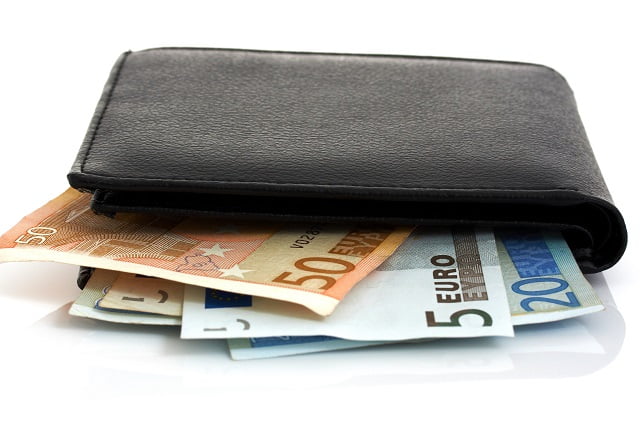Should I exchange money before I travel to Italy? Currency exchange is a crucial aspect to consider when planning a trip abroad. Understanding the Euro, weighing the pros and cons of exchanging money beforehand, and finding the best exchange rates are all important factors to take into account. Additionally, it’s essential to consider the risks of carrying large amounts of cash while traveling and explore alternative options for currency exchange.
When traveling to Italy, it’s important to familiarize yourself with the Euro, as it is the official currency used in the country. Understanding the value of the Euro compared to your home currency can help you budget and plan for your expenses during your trip. Additionally, being knowledgeable about how currency exchange works can ensure that you make informed decisions about when and where to exchange your money.
Exchanging money before traveling has its advantages and disadvantages. While doing so can provide you with a sense of security and convenience upon arrival in Italy, you may not always get the best exchange rates. It’s essential to weigh these factors carefully before making a decision. Furthermore, considering alternatives such as using credit or debit cards or using ATMs in Italy can also be beneficial in certain situations.
Understanding the Euro
The Euro is the official currency used in Italy, as well as in many other European countries. Understanding this currency is crucial for anyone planning to travel to Italy. Here are some key points you should know about the Euro:
- The Euro is abbreviated as EUR and is represented by the symbol €.
- It is divided into 100 smaller units called cents.
- Banknotes come in various denominations, including €5, €10, €20, €50, €100, €200, and €500.
- Coin denominations range from 1 cent to 2 euros.
When traveling to Italy, it’s important to familiarize yourself with the current exchange rate between your home currency and the Euro. This will help you understand how much your money is worth and make budgeting for your trip much easier.
Before exchanging money before traveling to Italy, it’s essential to weigh the pros and cons. While exchanging money beforehand can provide peace of mind and convenience, it may come with additional fees or unfavorable exchange rates that could end up costing you more. On the other hand, waiting to exchange money until you arrive in Italy might offer better rates but can also leave you vulnerable without local currency upon arrival.
Ultimately, understanding the Euro and considering the pros and cons of exchanging money before traveling are crucial steps in ensuring a smooth financial transition during your trip to Italy. It’s essential to do thorough research and consider all options before making a decision.
Pros and Cons of Exchanging Money Before Traveling
Exchanging money before traveling to Italy can have its pros and cons. One of the main advantages of exchanging money before your trip is the convenience it provides. By having some euros in hand, you can avoid the hassle of having to find a currency exchange or ATM as soon as you arrive in Italy. This can be especially beneficial if you are arriving late at night or in a less touristy area where currency exchange services may be limited.
Another advantage is potentially getting a better exchange rate by planning ahead. By monitoring the exchange rates and choosing the right time to exchange your money, you may be able to get more euros for your currency compared to exchanging it on arrival. This can ultimately save you money and give you more spending power during your trip.
On the other hand, there are also drawbacks to exchanging money before traveling to Italy. One major concern is the risk of carrying large sums of cash, especially if you are not able to secure it properly.
Carrying a significant amount of cash can make you a target for theft or pickpocketing, which is a common issue in tourist areas. Additionally, if you overestimate how much cash you will need, you may end up with excess euros that will need to be exchanged back into your original currency, potentially resulting in additional fees and unfavorable exchange rates.
Ultimately, whether or not to exchange money before traveling to Italy depends on various factors such as convenience, cost-effectiveness, and personal preferences. It is important to weigh the pros and cons carefully and consider your travel itinerary and spending habits before making a decision.
Tips for Finding the Best Exchange Rates
When planning a trip to Italy, one of the most important considerations is how to handle currency exchange. Finding the best exchange rates can save you money and make your travel experience more enjoyable. Here are some tips for finding the best exchange rates before you travel to Italy.
Research Exchange Rates in Advance
Before exchanging your money, it’s essential to research the current exchange rates. This will give you an idea of how much your home currency is worth in euros. Keep in mind that exchange rates fluctuate, so it’s a good idea to monitor them leading up to your trip. Websites and apps like XE, OANDA, or even your bank’s online platform can give you real-time currency conversion rates.
Compare Exchange Services
When exchanging money before traveling to Italy, it’s important to compare different exchange services to find the best rates and lowest fees. Banks often offer currency exchange services, but they may have higher fees and less competitive rates compared to specialized currency exchange businesses. Look for local money changers or online platforms that offer better deals for converting your currency into euros.
Avoid Airport Currency Exchanges
While it may be convenient to exchange money at the airport before departing for Italy, airport currency exchanges typically offer unfavorable rates and high fees. It’s best to avoid these services if possible and seek out better options in your home country.
By following these tips and taking the time to research and compare exchange services, you can find the best rates for converting your currency before traveling to Italy. This careful consideration should i exchange money before i travel to Italy ensure that you get the most value for your money during your trip.
Risks of Carrying Large Amounts of Cash While Traveling
Carrying large amounts of cash while traveling can be risky, especially in a foreign country like Italy. There are several potential drawbacks to carrying large sums of money with you as you explore the beautiful cities and countryside.
Potential Risks
One of the main risks of carrying large amounts of cash is the potential for theft. Tourists are often targeted by pickpockets and thieves, and having a substantial amount of money on your person makes you a more appealing target. Additionally, if you were to lose the cash or have it stolen, it would be nearly impossible to recover.
Another risk is the inconvenience of dealing with large amounts of cash throughout your trip. It can be cumbersome and impractical to carry around significant sums, especially when trying to make purchases or pay for accommodations.
Safer Alternatives
To avoid these risks, it’s advisable to consider alternatives to carrying large amounts of cash. One option is to use a pre-paid travel card, which can be loaded with funds before your trip and used like a debit or credit card while abroad. This method allows you to access your money conveniently without the risk associated with carrying physical cash.
Using ATMs in Italy is also a safe way to access funds without having to carry large amounts of cash from home. Just be sure to check with your bank beforehand about any international transaction fees that may apply. This way, you can withdraw smaller sums of money as needed and minimize the risk associated with carrying a significant amount on your person at all times.
Ultimately, while it may seem more convenient to exchange money before traveling to Italy, there are safer alternatives for managing your finances during your trip. By considering these alternative methods, you can minimize the risks associated with carrying large amounts of cash while still being able to enjoy all that Italy has to offer.
Alternatives to Exchanging Money Before Traveling to Italy
When traveling to Italy, there are several alternatives to consider when it comes to exchanging money. One option is to use your debit or credit card for purchases while in Italy. Most banks and credit card companies offer competitive exchange rates, making this a convenient and secure way to access funds during your trip. However, it is important to notify your bank of your travel plans beforehand to avoid any issues with using your card overseas.
Another alternative is using traveler’s checks, which can be exchanged for local currency at banks or exchange offices in Italy. While traveler’s checks provide added security compared to carrying cash, they may not always be accepted at all establishments. It’s also worth noting that traveler’s checks often come with fees for both purchasing and cashing them.
For those who prefer not to carry large amounts of cash or rely on cards, prepaid travel cards are another viable option. These cards are pre-loaded with a specific amount of money and can be used like a debit or credit card. They offer the convenience of a card without the risk associated with carrying large sums of cash.
When deciding on the best alternative for exchanging money before traveling to Italy, it’s essential to weigh the pros and cons of each method based on your individual needs and preferences.
| Alternative | Description |
|---|---|
| Debit/Credit Card | Banks and credit card companies offer competitive exchange rates; you must notify your bank beforehand. |
| Traveler’s Checks | Provide added security but may not be accepted everywhere and come with fees. |
| Prepaid Travel Cards | Offer the convenience of a card without the risk of carrying large sums of cash. |
How to Handle Currency Exchange While in Italy
When traveling to Italy, handling currency exchange can be a crucial aspect of your trip. Many travelers often wonder, “Should I exchange money before I travel to Italy?” The answer to this question depends on a variety of factors, including convenience, exchange rates, and potential fees. However, it’s also important to consider how you will handle currency exchange while in Italy.
One option for handling currency exchange while in Italy is to use ATM machines. This can be an efficient way to obtain Euros, as many ATMs in Italy accept foreign debit and credit cards. It is advisable to check with your bank about any international fees that may apply when using ATMs abroad.
Another method for obtaining local currency is through currency exchange services such as banks or independent exchange offices. While these may provide convenient options for exchanging money, it’s essential to compare the exchange rates and fees offered by different providers to ensure you’re getting the best deal.
Lastly, some travelers choose to use their credit or debit cards for purchases while in Italy. Many establishments in popular tourist areas accept major credit cards. However, it’s important to notify your bank of your travel plans beforehand so that they don’t flag any transactions as potential fraud.
Ultimately, deciding how to handle currency exchange while in Italy comes down to personal preference and individual circumstances. Being informed about the available options and making strategic choices can help ensure a smooth and cost-effective experience when obtaining local currency during your travels.
| Option | Advantages | Considerations |
|---|---|---|
| ATM Withdrawal | Convenient; Can provide competitive exchange rates | Possible international withdrawal fees; Foreign transaction charges |
| Currency Exchange Services | Ease of access; Various locations available | Potential higher fees; Varying exchange rates between providers |
| Credit/Debit Card Usage | No need for physical cash; May offer rewards or benefits from card issuer | Possible foreign transaction fees; Not all establishments accept cards |
Final Thoughts
In conclusion, the decision of whether to exchange money before traveling to Italy should be carefully considered based on individual preferences, convenience, and risk tolerance. While some travelers may prefer the ease and peace of mind of having cash in hand before departure, others may choose to rely on credit cards or ATMs to access funds while abroad.
When considering currency exchange, it is important to research and compare exchange rates from different sources such as banks, currency exchange services, and even online platforms. This can help travelers find the best rates and avoid unnecessary fees or unfavorable terms. Additionally, it’s essential for travelers to weigh the risks of carrying large amounts of cash while traveling against the potential benefits of having local currency readily available.
It’s advisable for travelers to consider using a combination of methods for accessing funds while in Italy, including a small amount of exchanged cash for immediate needs upon arrival, as well as credit/debit cards for larger purchases or emergencies. By making an informed decision based on individual preferences and circumstances, travelers can ensure a smooth and enjoyable travel experience without worrying about financial logistics.
Ultimately, each traveler should evaluate their own comfort level with different methods of accessing funds and make the choice that best suits their needs.
Frequently Asked Questions
Do I Need to Exchange Money Before Going to Italy?
It’s generally a good idea to exchange some money before going to Italy. While many places in Italy do accept credit cards, having some cash on hand for small purchases and at establishments that don’t accept cards can be helpful.
Is It Better to Carry Cash or Card in Italy?
It’s recommended to carry a combination of cash and card when traveling in Italy. Credit and debit cards are widely accepted in larger cities and tourist areas, but it’s also wise to have some cash for smaller shops, local markets, or places that may not accept cards.
Should I Take Cash to My Trip to Italy?
Taking some cash with you on your trip to Italy is advisable. It’s not necessary to bring large amounts of cash, but having some euros on hand for emergencies or for places that don’t accept cards can provide peace of mind during your travels.

I’m a passionate traveler, writer, and Italophile. My fascination with Italy’s history, art, and culture has led me on countless adventures across the Italian landscape. Through “I Live Italy,” I share my love for this extraordinary country and aims to inspire others to explore its boundless beauty.





